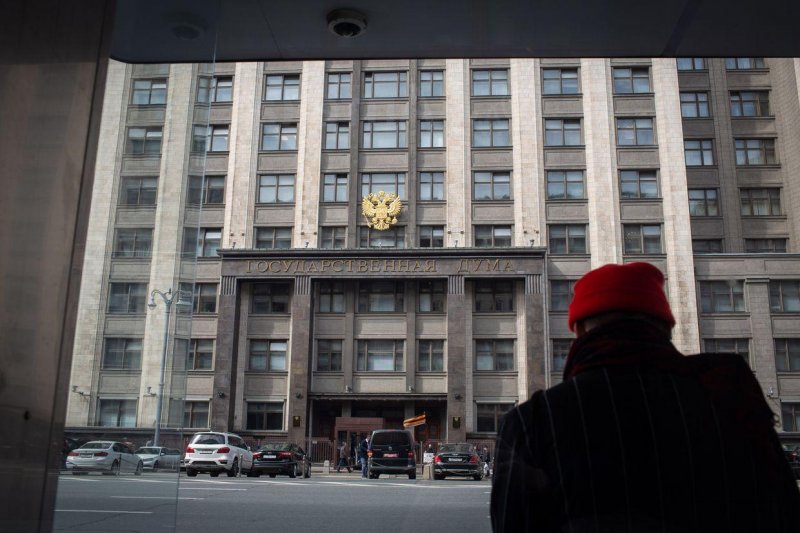
The coat of arms of the Russian Federation on the front of the State Duma building in Moscow, Russia, on April 15, 2021. (Andrey Rudakov / Bloomberg via Getty Images)
Russian Prime Minister Mikhail Mishustin has signed an order officially withdrawing Moscow from its long-standing military technical cooperation agreement with Germany, Russian state media reported on Friday, July 18.
The decision reflects the deepening rift between Russia and Western nations, particularly amid Germany’s continued support for Ukraine and the tightening of sanctions against Moscow. The bilateral agreement, initially signed in 1996 after the fall of the Iron Curtain and the collapse of the Soviet Union, had long been considered a symbol of post-Cold War cooperation between the two nations, News.Az reports, citing Ukrainian media.
In a statement, Russia’s Foreign Ministry asserted that the pact had lost its “meaning and practical significance” due to what it described as Germany’s “openly hostile” stance and “increasingly aggressive militaristic ambitions.”
Relations between Russia and Western nations have been deteriorating for over a decade, beginning with Moscow’s annexation of Crimea in 2014 and its ongoing military aggression in Ukraine. With its ties to Europe fraying, Russia has increasingly pivoted toward closer cooperation with countries such as North Korea, Iran, and China.
Earlier this month, Russian Foreign Minister Sergey Lavrov visited North Korea, where leader Kim Jong Un pledged “unconditional” support for Russia’s war in Ukraine. Lavrov also attended a BRICS summit in Brazil on July 6, where he met with Iranian Deputy Foreign Minister Abbas Araqchi to discuss nuclear energy cooperation and regional security.
On June 5, Russian President Vladimir Putin hinted that Moscow could supply advanced weaponry to allies capable of targeting Western assets, should Ukraine carry out strikes on Russian territory using Western-supplied arms.